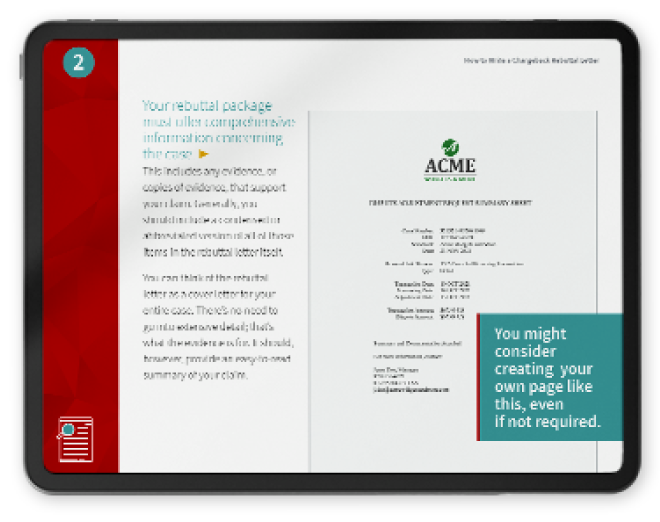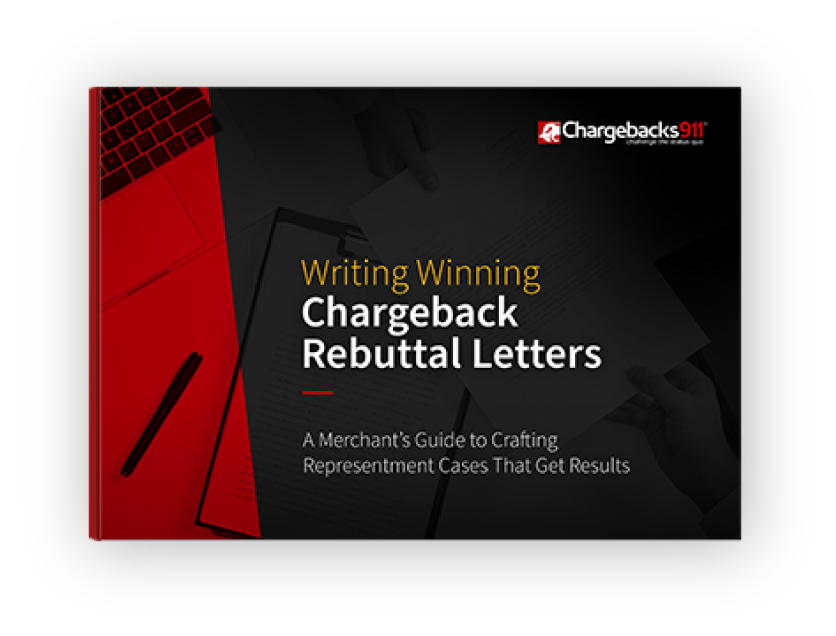Could a Chargeback Manager Be the Hero Your Business Needs?
You’re probably familiar with chargebacks to some degree. However, there’s also a good chance you’re unsure what to do about them.
This can lead to difficult-to-answer questions. For example, is it best to let internal fraud management or loss prevention departments handle disputes? Or, should you bring on an expert to handle the problem?
The answer will vary, depending on your business. But you should know…. ignoring the problem is not an option. So, with all that in mind, let’s examine the role a chargeback manager could play in your overall loss prevention strategy.
Recommended reading
- Chargeback Ratio: 8 Important Things to Know in 2024
- Prevent Double Refund Chargebacks & Unnecessary Losses
- What’s an “Acceptable” Chargeback Rate? Why Does it Matter?
- How to Find the Right Chargeback Management System
- Do Chargeback Bans Actually Help Stop Disputes?
- What is a Chargeback Analyst? Do You Need to Hire One?
What is a Chargeback Manager?
- Chargeback Manager
A chargeback manager is a specialist who implements chargeback policies and procedures to prevent chargebacks. They work to engage suspected friendly fraud attacks through representment and keep the business’s chargeback ratio within an acceptable range.
[noun]/chahrj • bak • man • i • jǝr/A chargeback manager must have specialized insight and understanding of fraud data, model schematics, and tools. This is because a large part of the job involves reading, analyzing, and communicating transactional records and databases. This lets the chargeback manager label trends in dispute filings and assists in developing a broader risk mitigation strategy.
This individual is also responsible for keeping all relevant parties apprised of the timeline and status of every claim and overseeing the compilation of analytical data and its implementation through best practices. The chargeback analyst would essentially defer to the chargeback manager, whose job it is to manage your business’s risk profile.
In this respect, the chargeback manager is the most important role in your organization’s fight against chargebacks. Having said that, let’s dig into your options.
What Does the Chargeback Manager’s Role Entail?
Chargeback managers oversee your incoming disputes and representment processes. They also guide and manage your team of chargeback analysts as well. That is to say; this individual delegates tasks to members of your fraud prevention team to better handle disputes and resolutions.
Ideally, prevention is the best chargeback management strategy. As you’re probably aware, though, no one can prevent every chargeback. Your chargeback manager is there to distinguish between those chargebacks you can and can’t prevent and to decide which disputes you can actually fight and win.
Typical daily responsibilities for a chargeback manager to oversee include:
Duties of a Chargeback Manager
So, that covers the basic responsibilities of a chargeback manager. What about the day-to-day responsibilities, though?
For a content manager focusing on chargeback management, their daily responsibilities are focused on maintaining clarity, compliance, and efficiency within your team. These duties include:
#1 | Monitoring Card Brand Regulations
Reviewing the regulations of card brands like Mastercard and Visa that apply to your business. They keep tabs on updates, ensuring that your chargeback management practices align with the unique requirements of your industry, such as travel or dining.#2 | Ensuring Processor Compliance
They regularly consult with your payment processors to stay informed of their specific chargeback response requirements. They then integrate these guidelines into your chargeback response procedures to maintain compliance.#3 | Updating Dispute Management Rules
Your chargeback manager keeps abreast of any changes in dispute management rules by scheduling routine checks. This vigilance is necessary to avoid penalties due to non-compliance.#4 | Conducting Training Sessions
Managers coordinate and execute training programs for new and existing team members. They facilitate ongoing education through reliable sources like a blog or newsletter, ensuring everyone is up-to-date with the latest practices and regulations.#5 | Maintaining Standardized Terminology
This person or agency regularly reinforces the use of standardized terminology within your team to ensure clarity and consistency in communication regarding chargebacks and disputes.#6 | Tracking Key Performance Indicators (KPIs)
They monitor crucial metrics such as return on investment (ROI), chargeback ratio, and win rate. These indicators help assess the effectiveness of your chargeback management efforts and inform strategic adjustments.#7 | Implementing Prevention Strategies
Your chargeback manager evaluates and refines your approach to preventing chargebacks, selecting appropriate tools, setting risk tolerance levels, and establishing evaluation criteria for effectiveness.#8 | Strategizing Chargeback Responses
They help you decide on the evidence collection, response formatting, and the specific circumstances under which to fight or accept chargebacks. They weigh factors like claim validity, evidence availability, cost, and the chargeback reason code.#9 | Analyzing Chargeback Data
Your chargeback manager will extract and analyze data from each chargeback to uncover actionable insights. Determine which KPIs to monitor, establish a schedule for data review, and develop a plan to improve chargeback practices.#10 | Assigning & Reviewing Tasks
Lastly, they distribute chargeback management tasks among team members, specifying roles in prevention, dispute management, and data analysis. They ensure each team member is cross-trained to support various roles, enhancing team flexibility.Your content manager is deeply involved in overseeing each of these complex aspects. The aim is to ensure that your team is well-informed, coordinated, and effective in managing and reducing chargebacks, thereby protecting and improving the company's bottom line.
How to Determine if You Need a Chargeback Manager
When does your situation warrant the dedicated attention of a chargeback manager? To help you make this decision, let's explore a series of questions. If you find yourself nodding in agreement to any of these, it might be time to consider bringing a chargeback manager on board.
- Has your business experienced a recent increase in chargeback rates?
- If you're seeing a noticeable uptick in chargebacks, it's a clear sign that your current strategies might not be sufficient.
- Do you operate in a high-risk industry?
- Certain sectors, like travel and luxury goods, are more prone to chargebacks. These are referred to as high-risk product categories.
- Are you facing difficulties with card brand regulations?
- Staying abreast of card brand regulations to ensure compliance and avoid penalties can be very challenging.
- Is your team struggling to manage chargeback disputes effectively?
- If your team is overwhelmed or lacks expertise in handling disputes, this inefficiency can lead to lost revenue.
- Are you unsure about the effectiveness of your prevention strategies?
- Without clear metrics to evaluate your chargeback prevention efforts, you might be missing out on opportunities to improve.
- Do you lack a standardized process for handling chargebacks?
- Inconsistencies in how your team handles chargebacks, with a lack of standardized processes, can lead to confusion and inefficiencies.
- Is your chargeback rate affecting your merchant account?
- A high chargeback rate can have serious implications, including higher fees, account freezes, or even account closure.
- Are you incurring significant losses due to chargebacks?
- Are you capable of implementing strategies to recover revenue and reduce future losses, given your current bandwidth?
If you answered “yes” to any of the questions above, it may be time to consider appointing a chargeback manager for your business. This role is not just about managing disputes; it's about adopting a strategic approach to minimize chargebacks, navigate complex regulations, and protect your revenue.
What You Should Look For in a Chargeback Manager
As with most things, expertise is the number one qualification to consider here.
Typically, a chargeback manager is regarded as a payments or chargeback specialist. An advanced degree in accounting or finance can help, but it is more important to have the hands-on know-how to manage chargebacks effectively. That’s why years of experience in payment processing and management are usually a prerequisite.
In addition to education and experience, a well-rounded manager should be an expert communicator, both verbally and in writing. The position hinges on effective communication between you, your vendors, supporting agencies, and in some cases, with cardholders.
Finally, the ideal candidate is an expert at cross-functional collaboration and problem solving. This person must have the ability to work effectively with sales, customer service, and IT departments, among others. This ensures a unified approach to minimizing chargebacks and improving the customer experience.
Is In-House Chargeback Management the Right Solution?
Savings, security, personalized knowledge…those all seem like compelling arguments in favor of in-house chargeback management.
The answers aren’t as clear-cut as they initially seem, however. Outsourcing your chargeback management could yield greater long-term savings. Having said that, let’s have a look at the common assumptions about in-house chargeback management, and let you decide for yourself which option is right for you.
Assumption:
There’s no need to invest in potentially-costly solutions up-front. Instead, your internal team can manage your disputes with little added cost.
The Truth:
While your up-front costs might be lower, outsourcing to a chargeback management service can usually offer significantly-higher win rates. This is because they have access to broader, more comprehensive data and insights.
Assumption:
Lots of merchants are hesitant to share their data with a third party. Working with an in-house team means you get to keep your data secure and internal.
The Truth:
With a reputable PCI-compliant mitigation firm, employees will have limited access that does not disclose valuable data. Administration staff will be bonded under a liability policy, and security protocols are likely to be much tighter than the ones you have in place now.
Assumption:
Your team knows the ins and outs of the business. Your chargeback manager will have an intimate knowledge of your operations, customer base, company culture, and more.
The Truth:
Knowing your company is a minor part of the equation compared to knowing the chargeback system inside and out. It’s more important to be able to individualize disputes, and to have strong existing relationships with a number of banks.
Assumption:
Building out a team and getting them up-to-speed at your own pace will make for a better chargeback management strategy in the long term.
The Truth:
The rules and regulations instigated by the networks are constantly changing. The evolution of technology means new threats will continue to emerge. Without constant monitoring, your business could take a serious hit before your team is even aware of the risk.
Assumption:
Having an in-house team allows for more transparency and accountability.
The Truth:
Your ability to identify inefficiencies and missteps in your own operations can be limited by the fact that you’re so close to the problem. A third party will be able to objectively identify, isolate, and respond to issues that you might have overlooked.
Ultimately, we’re not saying you shouldn’t hire an in-house chargeback manager. What we are saying, however, is that sometimes outside help is the more effective solution.
The fewer chargebacks you have each month, and the more disputes you win, the greater your ROI. And, generally speaking, an outsourced solution provider is going to be able to accomplish both of those things more effectively.
Questions to Ask When Selecting a Chargeback Manager
Whether you opt for an in-house chargeback manager, or decide to hire a third-party service, it’s important to note that the standards for either should be the same. Before you decide, consider these questions:
- Are there any guarantees?
- Do you need on-demand assistance, or long-term chargeback reduction?
- If considering a service provider, are there client testimonials available to validate their claims?
- Does either method support future technology and fraud trends?
- Do the up-front costs exceed transaction volume?
- Can this method analyze growth potential and budget accordingly?
- Is either solution adaptive to your business’ culture and goals?
Outsourcing some or all chargeback management responsibility doesn’t mean giving up control, nor does it mean that prior work will go to waste. On the contrary, your previously-acquired data can make products and services more efficient. Remember: you want a service provider that works with your internal risk management efforts, not in spite of them.
Our team works alongside your internal risk remediation team to deliver maximum revenue retention, leading to more efficient staff allocation. Our efforts are backed by the industry’s only performance-based ROI guarantee: if you don’t save, you don’t pay.
Click below and see how much revenue you could recover by adding the Chargebacks911® suite of tools and strategies to your operations.
FAQs
What is a chargeback manager job description?
A chargeback manager is a specialist who implements chargeback policies and procedures to prevent chargebacks. They work to engage suspected friendly fraud attacks through representment and keep the business’s chargeback ratio within an acceptable range.
What does a chargeback agent do?
A chargeback agent, or chargeback manager, is a person or agency responsible for helping a business prevent and manage disputes and chargebacks.
Who decides who wins a chargeback?
The decision on who wins a chargeback is made by the issuing bank of the cardholder, based on the evidence provided by both the merchant and the cardholder, as well as in accordance with the regulations set by the card network (e.g., Visa, Mastercard).
Do chargebacks get investigated?
Yes, chargebacks undergo an investigation process where the issuing bank examines the evidence submitted by both the merchant and the cardholder to determine the validity of the chargeback claim. This process is guided by the rules of the relevant card network (e.g., Visa, Mastercard).














